Norman Newell was an English record producer, who was mainly active in the 1950s and 1960s. He was also the co-writer of many notable songs. As an A&R manager for EMI, he worked with musicians such as Shirley Bassey, Dalida, Claude François, Vera Lynn, Russ Conway, Bette Midler, Judy Garland, Petula Clark, Jake Thackray, Malcolm Roberts, Bobby Crush and Peter and Gordon.
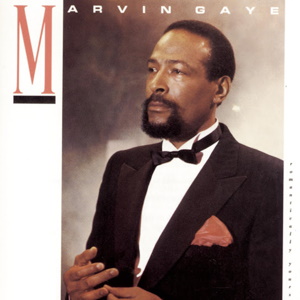
Romantically Yours is the second posthumous release by American recording artist Marvin Gaye, released by Columbia Records in 1985.

Love Songs brings together tracks from throughout Nat "King" Cole's recording career with Capitol records. The swing pianist turned ballad vocalist had a prolific chart run in the 1950s. Six of his UK hits are featured here.
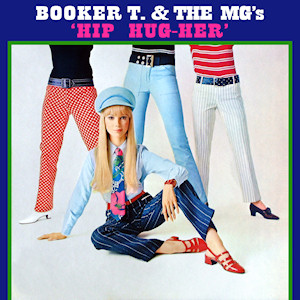
Hip Hug-Her is the fifth studio album by the Southern soul band Booker T. & the M.G.'s, released on Stax Records in June 1967. The title track was the band's most successful single since their debut, "Green Onions" while their cover of the Young Rascals song "Groovin'" was also a hit. The album was their last to be produced by Stax co-founder Jim Stewart, because the band started to produce themselves starting with Doin' Our Thing. The title track Hip Hug-Her is featured during the opening credits of the feature film Barfly (1987) with Mickey Rourke and Faye Dunaway..
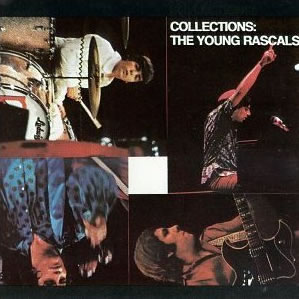
Collections is the second album by rock band The Young Rascals. The album was released on January 9, 1967 and rose to #15 on the Billboard Top LPs chart, and #8 in Canada.
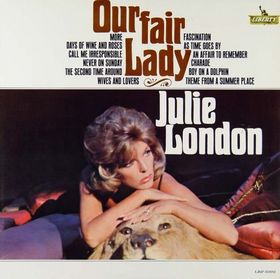
Our Fair Lady is an LP album by Julie London, released by Liberty Records under catalog number LRP-3392 as a monophonic recording and catalog number LST-7392 in stereo in 1965.

L-O-V-E is the final studio album by the American singer Nat King Cole. It was arranged by Ralph Carmichael. L-O-V-E was Cole's last album, and was released shortly before his death in February 1965. The songs "The Girl from Ipanema", "My Kind of Girl" and "More " were recorded December 1–3, 1964, shortly after Cole's diagnosis with lung cancer, and were the last recordings he made. The album peaked at #4 on the Billboard Albums chart in the spring of 1965.

Hollywood – My Way is a studio album by Nancy Wilson issued in July 1963 on Capitol Records. The album rose to No. 11 on the Billboard 200 chart.

Seduction: Sinatra Sings of Love is a 2009 double disc compilation album by American singer Frank Sinatra.

Romance is a 2004 compilation album by American singer Frank Sinatra, that consists of 50 romantic tunes.
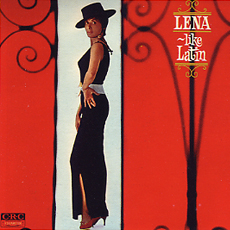
Lena Like Latin is a 1963 studio album by Lena Horne, arranged by Shorty Rogers and Marty Paich. Recorded in Hollywood in July 1963 and released in the summer of 1963 on the Chater label. The album was reissued on CD in 2008 by Fresh Sound Records, together with the album Lena Horne Sings Your Requests. The CD issue featured a bonus track "He Loves Me" that was previously only issued on 45rpm single.

Wide World Hits is the title of a recording by the instrumental group the String-A-Longs, released on Atco SD 33-241.

People is a compilation album by American pop singer Johnny Mathis that was released in the summer of 1969 by Columbia Records at the same time as another Mathis compilation, The Impossible Dream. Both releases include ten tracks from albums that he recorded during his time with Mercury Records between 1963 and 1967.

Sinatra/Basie: The Complete Reprise Studio Recordings is a 2011 compilation album by American singer Frank Sinatra that consists of 20 songs he recorded with jazz pianist Count Basie. 10 tracks from "Sinatra–Basie: An Historic Musical First" (1962), and 10 more from "It Might as Well Be Swing" (1964).
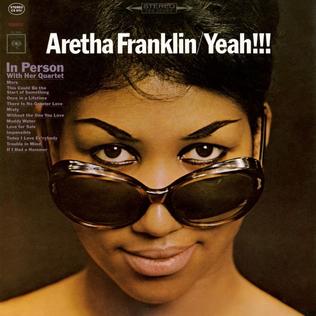
Yeah!!! is the seventh studio album by American singer Aretha Franklin, Released on May 17, 1965 by Columbia Records. Contrary to the overdubbed sounds of audience murmurs, the album was not a live album, but instead was recorded live at New York's Columbia Studios and produced by Clyde Otis. This would be Franklin's last collection of jazz recordings until the release of 1969's Soul '69, released during her landmark tenure at Atlantic Records. An expanded version of the album that also contains the original session tracks without audience overdubs has been released on CD in the Columbia Box Set Take a Look: Aretha Franklin Complete On Columbia.

Catch a Rising Star is the debut album from singer John Gary, released in 1963 on the RCA Victor label. The album spent over a year on the Billboard record chart.
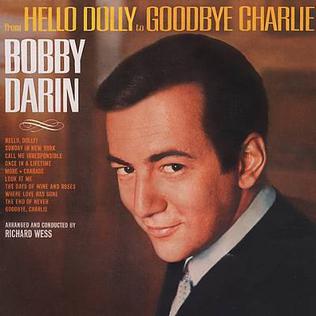
From Hello Dolly to Goodbye Charlie is a 1964 album by Bobby Darin. The album was arranged and conducted by Richard Wess.

Now Singing In 12 Great Movies is a 1963 studio album by the American singer Billy Eckstine. It was arranged by Billy Byers, conducted by Bobby Tucker, and produced by Quincy Jones.
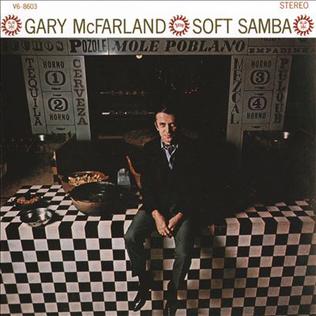
Soft Samba is a 1964 album by jazz arranger and vibraphonist Gary McFarland. A follow up album, Soft Samba Strings, was released in 1966.

Gentle Is My Love is a 1965 studio album by Nancy Wilson. It spent 24 weeks on the Billboard Top 200, peaking at No. 17, and reached No. 7 on the Hot R&B LPs chart. The album contains a mixture of standards from the Great American Songbook and more recent popular material.



















